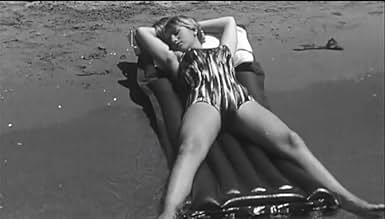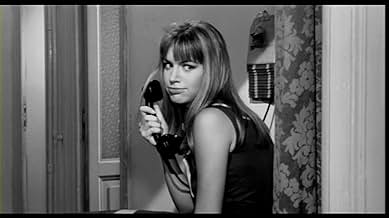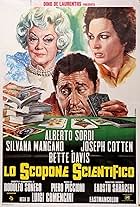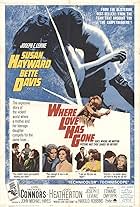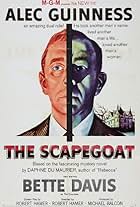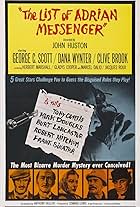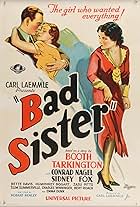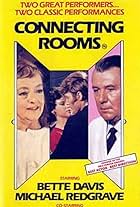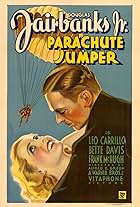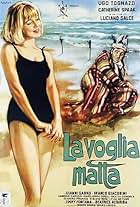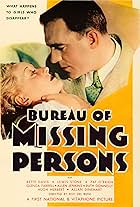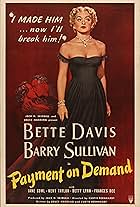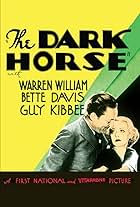IMDb RATING
6.8/10
1.1K
YOUR RATING
The son of a dead Italian nobleman and a wealthy American woman forgets the disappointment of finding he has no talent for being a painter by succumbing to the sexual advances of an amoral m... Read allThe son of a dead Italian nobleman and a wealthy American woman forgets the disappointment of finding he has no talent for being a painter by succumbing to the sexual advances of an amoral model who believes in indiscriminate love affairs.The son of a dead Italian nobleman and a wealthy American woman forgets the disappointment of finding he has no talent for being a painter by succumbing to the sexual advances of an amoral model who believes in indiscriminate love affairs.
- Awards
- 1 win
Nadia Balabine
- Party Guest
- (uncredited)
Micaela Dazzi
- Prostitute
- (uncredited)
Mario Lanfranchi
- Police Officer
- (uncredited)
Eleonora Marchianti
- Party Guest
- (uncredited)
Storyline
Did you know
- TriviaThe only conversation Catherine Spaak had with co-star Bette Davis on the set was one word "hello".
- GoofsCecilia is wearing a black button up blouse and a pencil skirt with a belt in the Dino's studio love making scene. It only takes her 3 seconds to go fully topless in the next close up shot.
- ConnectionsReferenced in The Possession of Damiani (2013)
Featured review
While most will wonder how the HELL Betty Davis ended up in this movie, I mean, c'mon an Italian Film!
Count your blessings she did. Davis is tremendous, Catherine Spaak performs her role with aplomb - and looks sexy as hell in the process and Horst Buchholz is a curious choice, certainly adequate, but definitely no one's first pick as the protagonist.
Oh - the movie? Yeah, yeah, sorry. One of two films based on the same novel by Alberto Moravia, (this one a box office failure) Empty Canvas is about a failed young artist in Rome, who has always relied on his very wealthy mother's money when times get tough, which is frequently! Buchholz may be a lot of things in this movie, but is not quite convincing as a painter.
The film commences with Buchholz slashing to a 60's `wild drums' soundtrack, all of his canvases; that's it, no more painting. Enter Spaak who looks gorgeous from the slasher's window as she flirts with Buchholz, `Dino' in the flick. The cinematography it must be said is great, if the VHS transfer, less so Spaak is called away by her lover a `legitimate great artist,' an old man who lives next door. The film henceforth struggles against its self-imposed convention ads of the time and on the VHS box tell us the story, in advance and alas, we know that story throughout and are never surprised.
And that story is you ask? Nothing more or less than the fact that gorgeous Spaak, `Cecilia' in the film, is a teenager who wants nothing but an empty affair with Dino. Mind you, she's just killed the old master painter who lives next door to Dino's studio. How? Heartbreak initiated by her infidelities. She next lands Dino who is snooping in the deceased old man's studio when Cecilia appears to `pick up her stuff', now that the old man her lover, is dead. Waste not, want not, I guess.
Dino meanwhile initially tells Spaak he desires not, sesso, despite her saying she's admired him all summer. It's not impotence, he assures her, no, it's just that he would feel nothing, should they engage. Fortunately, Dino comes to his senses and beds Spaak back at HIS studio, next door. (And thank God, because any man who declines a free tryst with Catherine Spaak, IS dead.)
Following this, we cut to Dino visiting his Mom, Ms. Betty Davis, at her lavish Roman estate. Davis is in sensational form as a U.S. expat. - from New Orleans no less; her Bayou accent is perfect, as is her acting. We derive that, as his Father was never around, and finally left altogether, (restlessness, Davis explains) Dino became a professional sponge in reaction. Davis, in every seen with Dino, begs him return home, but no, all he comes round for is her dough, the swine. So Dino's Daddy-less past is plausibly passed on as the reason he became the bum, er man, he is today.
Dino and Spaak commence curling up and doing it all over Rome and he becomes obsessed, despite Cecilia's obvious dalliance with another man. Dino proposes marriage, she eventually refuses; it ain't money she's after, not the real big kind, (though Dino does pay her something `after we make love,' which is frequently.) Eventually Cecilia goes on holiday with her other lover and Dino tries unsuccessfully to kill himself by car. On recovering, Mother tells him to move home or never contact her again. Dino ignores the threat and states that he will visit again from now on as a true son, not a sponger.
Davis wonders aloud how Dino will ever rid himself of Cecilia and in the film's only fully realized scene between Buchholz and Spaak, Spaak returns from her holiday with lover number two, to resume with Dino, but Dino declines. Spaak says she will await his call at her Mother's house and then predicts that as she walks away from his studio and it's raining hard outside he will call her back. We see her walk, look, walk, look and look again at his studio. Well it's three looks you're out. Dino does not motion for her to return and Cecilia walks around a corner and out of scene presumably out of his life. Shot through Dino's Window in Piazza Del Poppolo in the pouring rain, the scene is predictable as hell yet extremely effective.
The whole movie unfortunately, is also predictable as hell. And what about that `Empty Canvas' as a metaphor? Yes, Buchholz alludes to it in passing, saying that the Empty Canvas in the angst-filled, atom bomb's scared 1960's, is the only true image. This film then, like that image, has all the right ingredients but the tone,' is all over the place. The ingredients are, an excellent cast (Davis, superb), air-tight plot, and a brilliant metaphor and empty canvas equals an un-returned love. Oh, throw in great, brilliantly lit, cinematography but of course, this is an early 60's Italian film so that's a given.
As so often happens in film, a great premise is squandered. This film, while still very much worth watching for the various ensemble scenes and Spaak's incredible sexuality, is itself an empty canvas! It is a hodge-podge of techniques and tones that never make a satisfying stew,' with a totally transparent and obvious ending.
** Bonus foot note. One should not underestimate Catherine Spaak's impact in the 60's. Her haircut in the fantastic Il Sorpasso started an international rage, her singing is excellent, her looks incredible and her acting frequently brilliant. And to think, her greatest accomplishments all occurred before age 20 ! Can someone tell me why this woman never became the greatest thing since sliced toast?
Oh - the movie? Yeah, yeah, sorry. One of two films based on the same novel by Alberto Moravia, (this one a box office failure) Empty Canvas is about a failed young artist in Rome, who has always relied on his very wealthy mother's money when times get tough, which is frequently! Buchholz may be a lot of things in this movie, but is not quite convincing as a painter.
The film commences with Buchholz slashing to a 60's `wild drums' soundtrack, all of his canvases; that's it, no more painting. Enter Spaak who looks gorgeous from the slasher's window as she flirts with Buchholz, `Dino' in the flick. The cinematography it must be said is great, if the VHS transfer, less so Spaak is called away by her lover a `legitimate great artist,' an old man who lives next door. The film henceforth struggles against its self-imposed convention ads of the time and on the VHS box tell us the story, in advance and alas, we know that story throughout and are never surprised.
And that story is you ask? Nothing more or less than the fact that gorgeous Spaak, `Cecilia' in the film, is a teenager who wants nothing but an empty affair with Dino. Mind you, she's just killed the old master painter who lives next door to Dino's studio. How? Heartbreak initiated by her infidelities. She next lands Dino who is snooping in the deceased old man's studio when Cecilia appears to `pick up her stuff', now that the old man her lover, is dead. Waste not, want not, I guess.
Dino meanwhile initially tells Spaak he desires not, sesso, despite her saying she's admired him all summer. It's not impotence, he assures her, no, it's just that he would feel nothing, should they engage. Fortunately, Dino comes to his senses and beds Spaak back at HIS studio, next door. (And thank God, because any man who declines a free tryst with Catherine Spaak, IS dead.)
Following this, we cut to Dino visiting his Mom, Ms. Betty Davis, at her lavish Roman estate. Davis is in sensational form as a U.S. expat. - from New Orleans no less; her Bayou accent is perfect, as is her acting. We derive that, as his Father was never around, and finally left altogether, (restlessness, Davis explains) Dino became a professional sponge in reaction. Davis, in every seen with Dino, begs him return home, but no, all he comes round for is her dough, the swine. So Dino's Daddy-less past is plausibly passed on as the reason he became the bum, er man, he is today.
Dino and Spaak commence curling up and doing it all over Rome and he becomes obsessed, despite Cecilia's obvious dalliance with another man. Dino proposes marriage, she eventually refuses; it ain't money she's after, not the real big kind, (though Dino does pay her something `after we make love,' which is frequently.) Eventually Cecilia goes on holiday with her other lover and Dino tries unsuccessfully to kill himself by car. On recovering, Mother tells him to move home or never contact her again. Dino ignores the threat and states that he will visit again from now on as a true son, not a sponger.
Davis wonders aloud how Dino will ever rid himself of Cecilia and in the film's only fully realized scene between Buchholz and Spaak, Spaak returns from her holiday with lover number two, to resume with Dino, but Dino declines. Spaak says she will await his call at her Mother's house and then predicts that as she walks away from his studio and it's raining hard outside he will call her back. We see her walk, look, walk, look and look again at his studio. Well it's three looks you're out. Dino does not motion for her to return and Cecilia walks around a corner and out of scene presumably out of his life. Shot through Dino's Window in Piazza Del Poppolo in the pouring rain, the scene is predictable as hell yet extremely effective.
The whole movie unfortunately, is also predictable as hell. And what about that `Empty Canvas' as a metaphor? Yes, Buchholz alludes to it in passing, saying that the Empty Canvas in the angst-filled, atom bomb's scared 1960's, is the only true image. This film then, like that image, has all the right ingredients but the tone,' is all over the place. The ingredients are, an excellent cast (Davis, superb), air-tight plot, and a brilliant metaphor and empty canvas equals an un-returned love. Oh, throw in great, brilliantly lit, cinematography but of course, this is an early 60's Italian film so that's a given.
As so often happens in film, a great premise is squandered. This film, while still very much worth watching for the various ensemble scenes and Spaak's incredible sexuality, is itself an empty canvas! It is a hodge-podge of techniques and tones that never make a satisfying stew,' with a totally transparent and obvious ending.
** Bonus foot note. One should not underestimate Catherine Spaak's impact in the 60's. Her haircut in the fantastic Il Sorpasso started an international rage, her singing is excellent, her looks incredible and her acting frequently brilliant. And to think, her greatest accomplishments all occurred before age 20 ! Can someone tell me why this woman never became the greatest thing since sliced toast?
- How long is The Empty Canvas?Powered by Alexa
Details
- Runtime1 hour 45 minutes
- Color
- Sound mix
- Aspect ratio
- 1.85 : 1
Contribute to this page
Suggest an edit or add missing content


